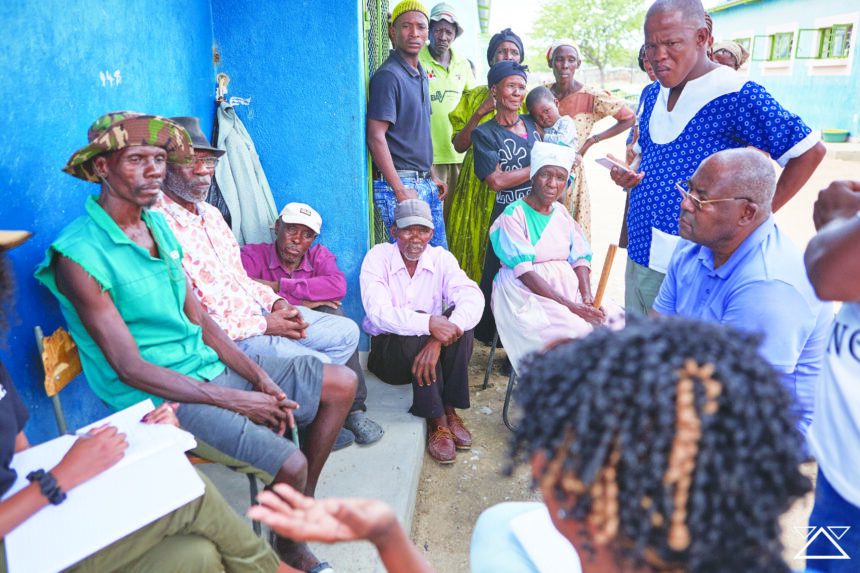Lahja Nashuuta
The Hai//om San community residing along the Etosha National Park have been capacitated on legal and human rights, land rights, cultural heritage and social exclusion.
The five-day training started last week, and ended over the weekend.
It was conducted by the Legal Assistance Centre (LAC) in partnership with the European Union to equip the community with legal knowledge and tools to defend their rights and actively participate in national development.
Speaking on the initiative, LAC programme coordinator Corinna van Wyk highlighted
the importance of training paralegals from within the San community.
The training forms part of ongoing efforts to empower marginalised communities, and promote access to justice in remote areas.
Van Wyk said the marginalised community was empowered to interact with police, prosecutors and the courts.
“These paralegals will receive comprehensive training to provide legal advice and support to their fellow community members,” she stated.
“A key part of their role will be sharing knowledge through a manual designed to educate the community about their rights and the legal avenues available for enforcement,” she added.
The training included an outreach and site inspection mission to evaluate the effects of resettlement on the Hai//om community, particularly regarding their cultural and land rights.
Van Wyk said by gathering socio-economic and cultural data, this initiative seeks to guide future support efforts while promoting inclusion and equality.
LAC will further assess progress at various resettlement farms, and explore solutions to land and cultural rights’ concerns arising from these transitions.
“The goal is to raise awareness about the struggles of the Hai//om San community while empowering San paralegals with the tools to advocate effectively for their people,” Van Wyk added.
Findings and recommendations from the training will be compiled into a comprehensive report, providing actionable recommendations for future interventions.
“Throughout this process, we aim to strengthen partnerships with key stakeholders, including the Hai//om Association, the Hai//om Traditional Authority and government entities, to ensure long-term support for the community’s rights and well-being,” Van Wyk said.



